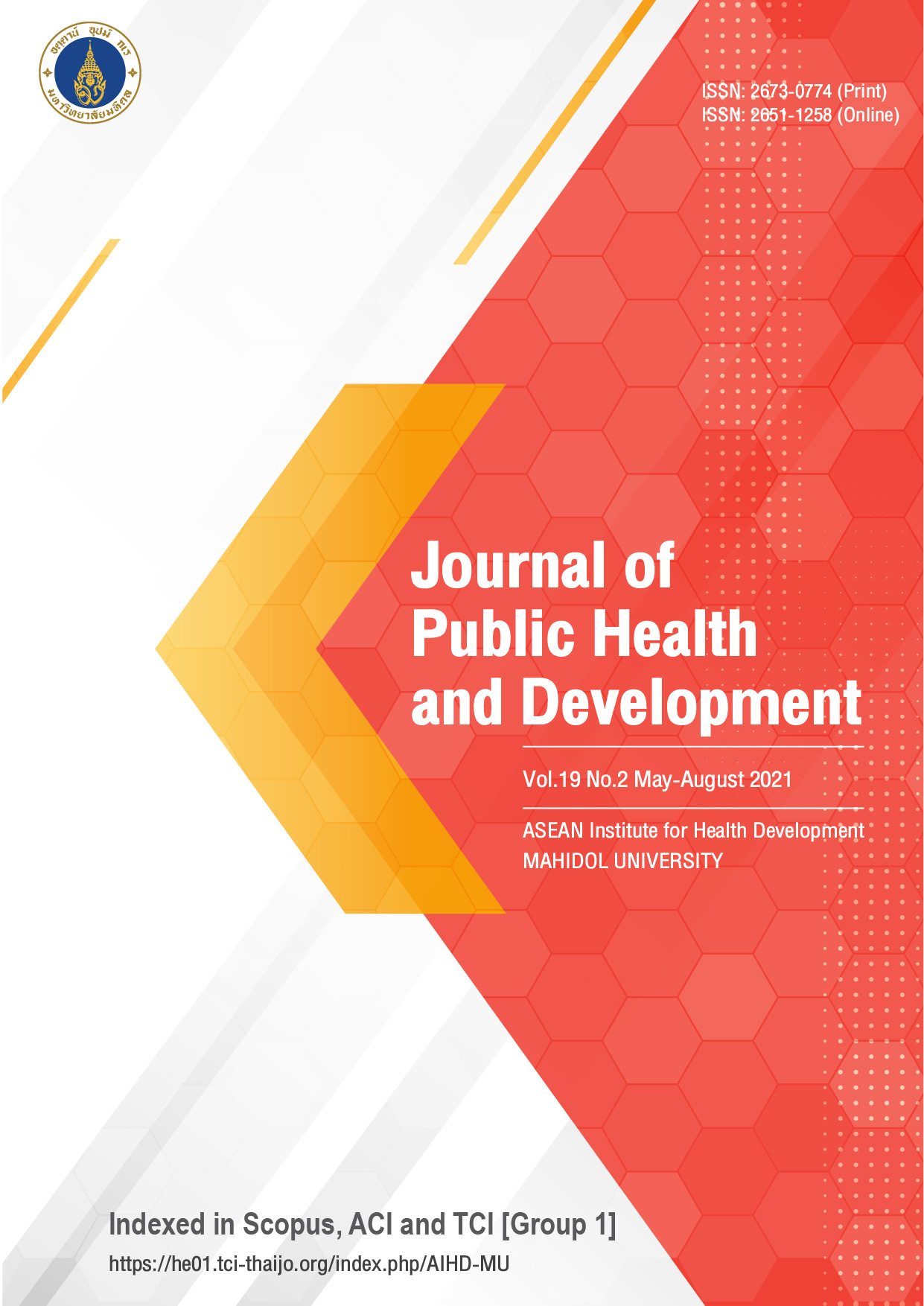Knowledge and perception of diabetes mellitus among civil servants in Oyo state, Nigeria
Main Article Content
Abstract
Diabetes mellitus (DM) is a public health problem worldwide. This study was designed to investigate the knowledge and perception of DM among civil servants at the Oyo State Government Secretariat, Ibadan, Nigeria. A cross-sectional design was adopted and a multi-stage sampling technique was used to select 446 civil servants from 10 randomly selected parastatals at the Government Secretariat. A semi-structured questionnaire which included a 30-point DM knowledge scale and a 16-point DM perception scale was used to collect data. Data were analyzed using descriptive statistics, T-test and ANOVA at p < 0.05. Respondents’ ages ranged from 26 - 59 years with a mean of 41.1 ± 8.3 years. Mean knowledge score of respondents was 15.7 ± 5.3. Many participants (44.8%) had fair knowledge. Respondents’ mean perception score was 10.9±9.0, with 22.2% having a risky perception of diabetes. Many (63.7%) participants perceived the disease to be a serious health problem. Respondents aged <30 years were significantly more knowledgeable about diabetes (P=0.001, X2= 23.034) than others. Only age, marital status and ethnic group were demonstrated to have an association with overall knowledge (P<0.05), while age and ethnic group were associated with overall perception (P<0.05). A great proportion of participants had fair knowledge of DM, implying gaps in knowledge of the disease. In addition, risky perceptions relating to DM exist among them. Workplace educational interventions as well as advocacy are recommended to address these concerns.
Article Details

This work is licensed under a Creative Commons Attribution-NonCommercial-NoDerivatives 4.0 International License.
References
World Health Organization. Global Status Report on Non-Communicable Diseases. Geneva: meeting of the general assembly on the prevention and control of Non- communicable diseases. 2018
Shittu RO, Kasali FO, Biliaminu SA. Prevalence of Diabetes and Pre-Diabetes in Oke- Ogun Region of Oyo State, Nigeria. J Med Res Health Educ 2017;(1): 1.
Whiting DR, Guariguata L, Weil C, Shaw J. IDF Diabetes Atlas: global estimates of the prevalence of diabetes for 2011 and 2030. Diabetes Res Clin Pract 2011; (94):311–321.
Unwin N, Whiting D, Guaringuata L, Ghyoot G, Gan D. An overview of management issues in adult patients with type 2 diabetes mellitus. J Diabetes Sci Technol 2011; 5(2):245–250.
World Health Organization/International Diabetes Federation. Diabetes Action Now. An initiative of the WHO library cataloguing – in – publication data. Geneva 2011;(49): 1-49.
Moodley L, Rambiritch V. An assessment of the level of knowledge about diabetes mellitus among diabetic patients in a primary healthcare setting. South Africa Family Practice. 2007; 49(10): 16a-16d.
Larsson SC, Wolk A. Diabetes mellitus and incidence of kidney cancer: a meta-analysis of cohort studies. Diabetologia 2011; (54): 1013–1018.
Nwaokoro JC, Oputa RN, Ede AO. Community participation in the prevention of diabetes complications in the South-East, Nigeria. Am J Sc and Tech 2014; (1): 69–76.
Achigbu EO, Oputa RN, Achebe KI, Ahuche IU. Knowledge and impact of diabetes in patients in a tertiary clinic in Southeast Nigeria. African journal of diabetes medicine 2015;(23)1.
Uloma-Maurice C, Godswill AN, Dennis OU. Socio-demographic determinants of the knowledge of diabetes mellitus in Onitsha-North Local Government Area, Anambra State, Nigeria. Orient Journal of Medicine. 2014; 26:1-2
Chinenye S, Uloko AE, Ogbera AO, Ofoegbu EN, Fasanmade OA. Profile of Nigerians with Diabetes Mellitus-Diabcare Nigeria Study Group- Results of a Multicenter Study. Indian J EndocrinolMetab 2012; (16): 558-564.
Wild S, Roglic G, Green A. Global prevalence of diabetes: estimate for the year 2000 and projections for 2030. Diabetes Care. 2004; 127(5): pp1047–1053.
Walker EA, Caban A, Schechter CB, Basch CE, Blanco E, DeWitt T. Measuring comparative risk perceptions in an urban minority population: the risk perception survey for diabetes. Diabetes Educ. 2007; 33(1):103-10.
Weiland TJ, Nguyen M, Jelinek GA. Illness perception and knowledge with regard to prediabetes and type 2 diabetes: a pilot study of emergency department patients and staff. Eur J Emerg Med. 2012;19(6):353-8.
Pinelli NR, Berlie HD, Slaughter RL, Jaber LA. Risk perception for developing diabetes among pharmacists. J Epidemiolo Community Health. 2009; 43(6):1050-6.
Oyerinde OO, Owojaiye SO. Dietary, exercise lack and obesity: health consequences of civil-servants in Nigeria in “optimizing performance excellence and wellness through the changing phase of sport, recreation, medicine and exercise science” Proceedings of Fourth International Council for Health, Physical Education, Recreation, Sport and Dance (ICHPER-SD) Africa, RegionalCongress [Internet]. 2008. Available from: http://www.unilorin.edu.ng/publications/oyerindeoo/dietary.pdf
Oyegbade OO, Abioye-Kuteyi EA, Kolawole BA, Ezeoma IT, Bello IS. Screening for diabetes mellitus in a Nigerian family practice population. SA Fam Pract 2007; 49:15-19
Afolalu TD, Wada OZ, OlawadeDB, and Suntai AD. Prevalence of Diabetes Mellitus among Adult Residents of Tinda Rural Community, Nigeria. Journal of Biosciences and Medicines 2020; 8:107-116.
National Population Commission of Nigeria. Nigeria population and Housing Census [Internet]. [cited 2006]. Available from: http//ghdx.healthdata. org/record/nigeria-population-and-housing-census-2006
Oyo State of Nigeria Book of Estimates. 2017.
Okolie UV, Ijeoma EO, Peace IN, Ngozi KI. Knowledge of diabetes management and control by diabetic patient at the federal medical centre Umuahia Abia state, Nigeria. Int J Med Med sci 2009;1:353-358.
Odili VU, Isibogr PD, Eregie A. Patient’s knowledge of diabetes mellitus in a Nigerian city. Trop J pharmaceutical Res 2011;(10):637-642.27.
Arugu G, Maduka O. Risk Factors for Diabetes Mellitus among adult Residents of a rural district in Southern Nigeria: Implications for Prevention and Control. Nigerian Journal of Clinical Practice 2018;3-4.
Rafique G, Azam SI, White F. Diabetes knowledge, beliefs and practices among people attending a university hospital in Karachi, Pakistan. East Med Health Journal 2006;(12):590-598
West JD, Goldberg KL. Diabetes self care knowledge among outpatients at a Veterans Affairs Medical Center. Am J Health-Syst Pharm 2012; (59):849-852.
Khan N, Gomathi KG, Shehnaz SI. Diabetes-related knowledge among university students in Ajman, United Arab Emirates. Sultan QaboosUniv Med J 2012; (12):306-314.
Albargawi M, Snethen J, Gannass AAL. Perception of persons with type 2 diabetes mellitus in Saudi Arabia. International journal of Nursing sciences 2016;3(1):39-44.


